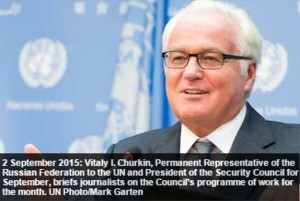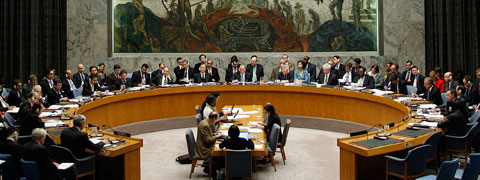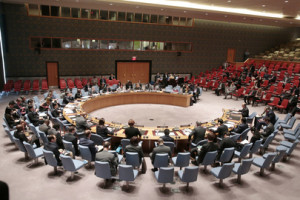 Yesterday, Ambassador Vitaly Churkin held a press conference assuming Russia’s presidency of the United Nations Security Council for September during which he commented on the UNSC reform and proposals on veto limitations. Commenting on the proposed initiative by France to limit UNSC permanent members veto powers, Churkin said it was a “populist” idea and that a compromise on a UNSC reform was nowhere in sight.
Yesterday, Ambassador Vitaly Churkin held a press conference assuming Russia’s presidency of the United Nations Security Council for September during which he commented on the UNSC reform and proposals on veto limitations. Commenting on the proposed initiative by France to limit UNSC permanent members veto powers, Churkin said it was a “populist” idea and that a compromise on a UNSC reform was nowhere in sight.
Ambassador Churkin has first addressed negotiations around the admission of new permanent members, introducing a third-category of long-term non-permanent members: “We want a historic compromise to be reached between the two main camps: Those who want to have new permanent members and those who don’t want to have permanent members, and advocate a reform with a new category of intermediate countries which will be elected for a longer period of time than the current two years for the current non-permanent members.” Continue reading


